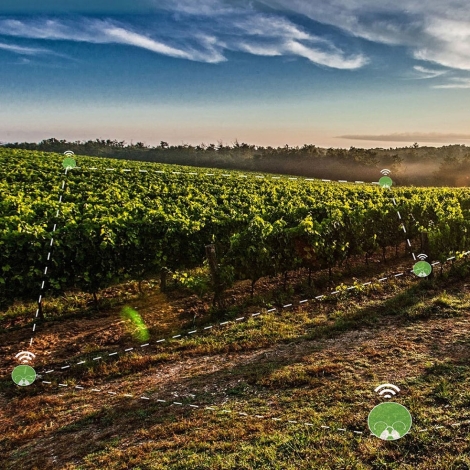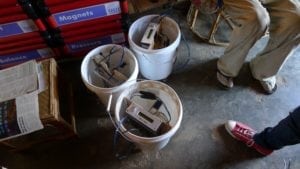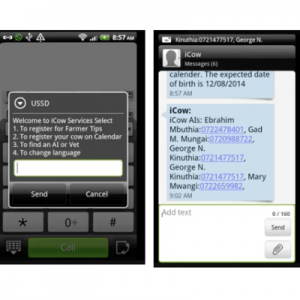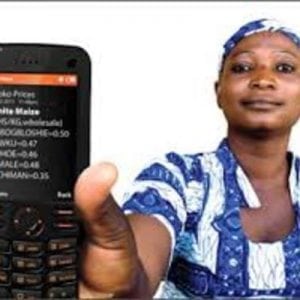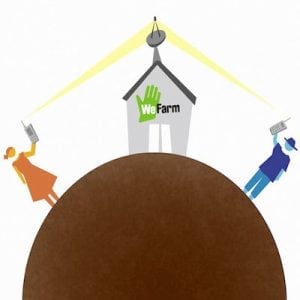Internet and communications technologies have transformed farms in the world’s developing and underserved communities. In the past, digital tools for farmers often amounted to weather and market information updates on their mobile phones, and those services persist in much richer and more complex incarnations. But the field has matured since its early days, branching to the point that it’s hard to talk about ICTs for agriculture without oversimplification. We saw a reflection of that growth in June when hundreds of people crowded into FHI 360 in Washington, DC, to participate in ICTforAg 2017. An expert panel delivered a detailed analysis of the role of aerial drones in increasing crop yields (mapping boundaries, spotting crop failures), which Emily Johnson at USAID’s Bureau of Food Security wrote about at ICTWorks. We heard an empathetic evaluation of the pitfalls of paying farmers in mobile money, and one of the closing panels shared tips on how to embrace digitally enabled business models (we are “afraid of data,” but it “should be the core of development projects”).
E4C’s Research Fellows have investigated some of the products and services demonstrated at the event and added them to our Solutions Library. We have also mixed in other relevant entries, plus a few digital products supported by the Rural Africa Network, a partnership of 18 African universities led by Makerere University in Kampala, Uganda, funded by USAID.
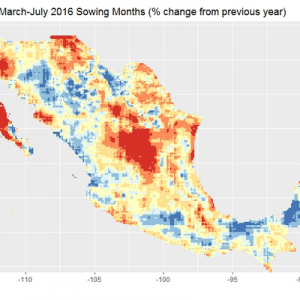 aWhere’s big data and data-driven predictions
aWhere’s big data and data-driven predictions
aWhere captures 7 billion data points every day and analyzes the information to provide weather forecasts, disease alerts and recommendations for when farmers should plant, which crops and seed varieties they should consider planting, and when they might expect to harvest. The data come from satellite and ground radar, ground observation stations, economic reports and reports on crop yields, new varieties, national census and other sources. One of the services, disease alerts, have reduced crop losses among customers by 25 percent, aWhere’s representatives say.
The social enterprise launched in the late 1990s as a service directed at smallholder farmers in developing countries, and they continue to serve that market, but now they also sell data and big-data-driven predictions to commercial farms and related businesses, governments and others.
In conversation and recorded interviews online, aWhere’s representatives like to point out that the world’s population is expected to grow by 2.4 billion people by the year 2050. And as the climate changes, weather will be increasingly different from the patterns to which farmers have become accustomed. Under those pressures, big data like aWhere provides may be necessary to continue to feed all of us.
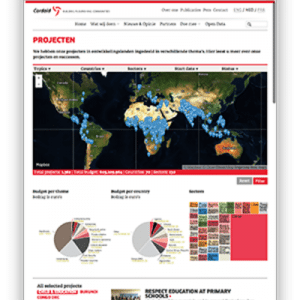 Akvo Really Simple Reporting (RSR)
Akvo Really Simple Reporting (RSR)
Social businesses, non-profits and others who work with smallholder farmers in developing countries, or in any field, really, can find easy-to-use communications and reporting tools in Akvo RSR. The suite of tools allows organizations to publish Web pages that describe their projects, visualize data, gather data even when an Internet connection is not available, report and publish findings, track progress and problems and so on. It’s a “multi-purpose, online, open, distributed content management platform” by the organization that has managed FLOW. Akvo took over FLOW in 2012 when it was Water for People’s pet project, a water-point monitoring and problem-mapping tool. Akvo updated it with a new look and new functionality and continues to manage and improve FLOW among its suite of other tools.
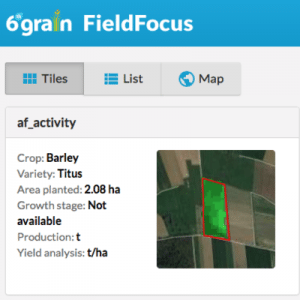 6grain digital tools for maize and wheat farmers
6grain digital tools for maize and wheat farmers
6grain aggregates data from satellites, ground stations, remote sensors and its network of farmers to improve grain yields. The service focuses on maize and wheat in Africa and Asia. Its FieldFocus product digitizes a farm by combining satellite analysis with information that the farmers provide themselves to customize warnings and recommendations.
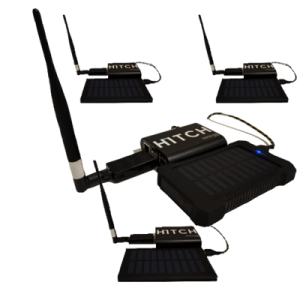 Hitch wireless router and offline “Internet”
Hitch wireless router and offline “Internet”
These wireless routers automatically create Wi-Fi hotspots and they can interconnect existing hotspots to provide offline content. The system downloads relevant information when connected to the Internet and stores it for distribution even when the Internet is not available. The result is a broadband network with useful content that operates in underserved communities. When there is more than one router, they can connect into data hubs that allow users to go online without the need for individual ISP connections. These create a useful Internet experience and an offline “Internet” for people who tend to have connectivity problems and lack access.
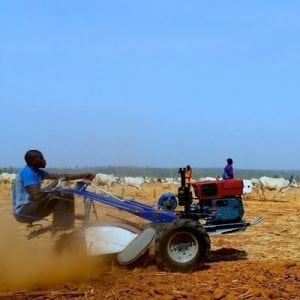 Smart Tractor
Smart Tractor
The world’s smallholder farmers may have use for a tractor, but they don’t need it every day. Rather than incur the expense of a machine that sits idle some of the time (or most of the time), farmers and entrepreneurs can rent tractors using a mobile application. Hello Tractor is an agricultural technology company that has created a Smart Tractor network through an app. The Smart Tractor is a 15 horsepower tool equipped with attachments tailored to different crop varieties and their stages of production.
Smart Tractors are each owned by a farmer or an entrepreneur who rents them to farmers. The tractor collects use and location data and can be rented out to neighboring farmers through the Smart Tractor network.
RootIO
RootIO is a network of small solar-powered community radio stations in northern Uganda. The stations are supported with RootIO’s Radio as a Service cloud-based services that allow the owners to send phone calls straight to the air for broadcast, download audio from the Internet and poll listeners who vote with text messages. Using their mobile phones, radio show hosts can interact with callers on the air, businesses can record advertisements and journalists can record meetings, sports and other events for broadcast. The stations serve as a platform for farmers and other rural residents to share knowledge and views among one another, and as an emergency warning and information service.
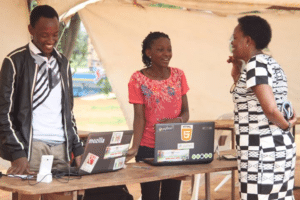
Isaac Omiat (L) and Lisa Katusiime of the Agro Market Day team chat with a judge at National Youth Inventors and Innovators.
Agro Market Day
This mobile phone application enables farmers to sell their produce, get information about agricultural markets and market days, shares modern farming methods and tips on agricultural tools for tailored to districts in Uganda. The app in now in Google Play for download.
iCow
Livestock farmers in Kenya use iCow to learn best practices for rearing their cows and chickens, and to track the animals’ gestational periods and find the nearest veterinarian. Created by Green Dreams and distributed through Safaricom, Kenya’s largest mobile service provider, iCow sends weekly SMS messages with tips on breeding, diet, nutrition, health, illness, milk production and other information.
To track gestational periods, farmers register their cows and their insemination date by SMS short code, and then receive periodic SMS prompts on when to take action during the gestation period.
[From 10 mThings Changing Lives in Developing Countries]
Esoko
Esoko allows its users to push information to small-holder farmers with the goal of improving their income. Updates include market prices, weather forecasts, advisory services and others. The system can also survey farmers to understand their needs and gives them the option of setting up a Web site.
The system operates in multiple currencies, targets multiple commodities and markets and has developed projects in 16 sub-Saharan African countries and Mexico.
[From 10 mThings Changing Lives in Developing Countries]
WeFarm
This free-of-charge, peer-to-peer platform allows smallholder farmers to share information among themselves. WeFarm users can ask and answer questions and share tips about farming and business through SMS messages or online, meaning that it works with or without Internet access.
WeFarm is built around the principle that rural farming communities in developing countries have generations worth of knowledge to share but lack the tools to do so.
